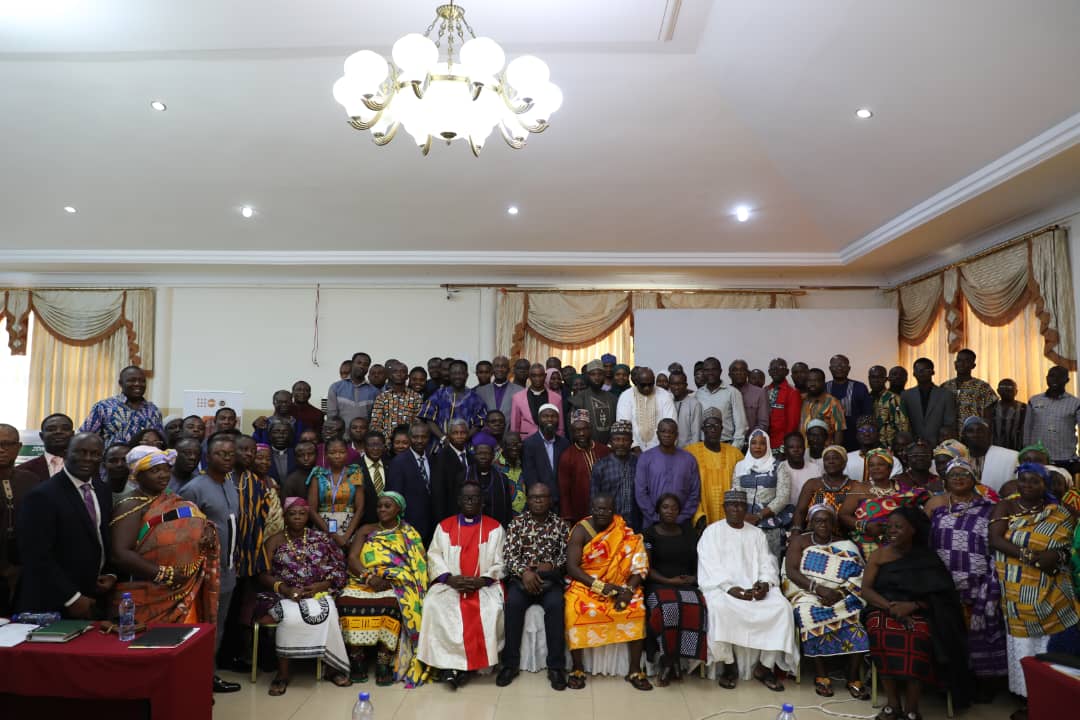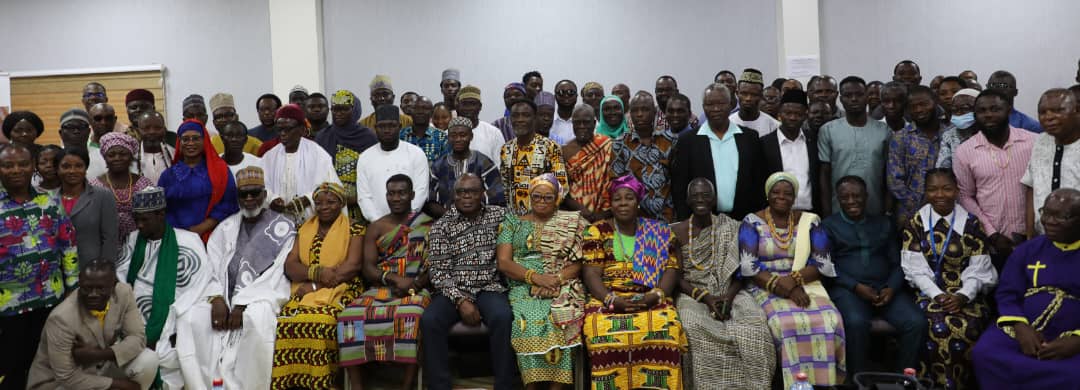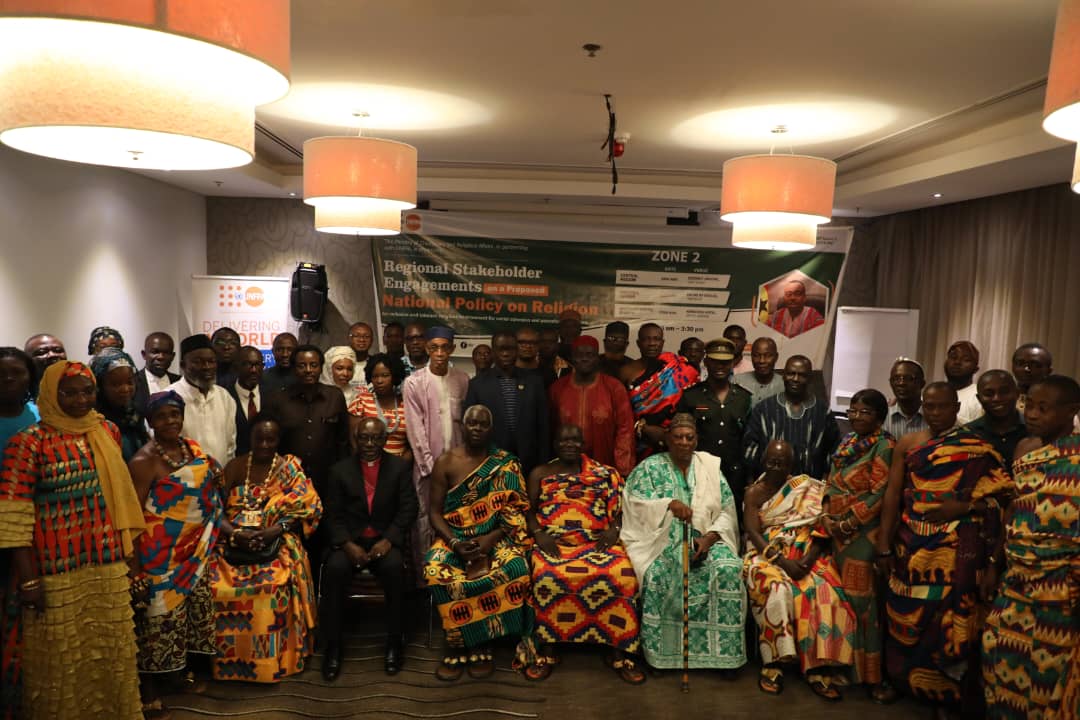Events &
Publications




The
Lin
guist
Ministry of Chieftaincy
and Religious Affairs
E-Newsletter
The Leadership
Stephen Asamoah Boateng
Halima S. Yakubu (Mrs)
The Directors
Joseph Amoah
Email: joseph.amoah@
mcra.gov.gh
Evans Habadah
Email: evans.habadah@
mcra.gov.gh
Joseph Peter Abbey
Email:
jp.abbey@
mcra.gov.gh
Richard Fedieley
Email: richard.fedieley@
mcra.gov.gh
Dr. Doliwura Zakaria
Email:
doliwura.zakaria@
mcra.gov.gh
Samuel Menkah
Email:
samuel.yeboah-menkah@
mcra.gov.gh
Richard Obeng
Email:
richard.obeng@
mcra.gov.gh
Chieftaincy in Ghana
Before colonial rule, traditional authority evolved in correspondence with changing conditions such as in the direction of major trade routes, in the location of international markets, struggles for the control of natural resources, and the rise of expansionist ideologies. Since British colonial rule, the organisations and functions of the institutions have been shaped by political engineering in the form of British Orders in Council or Ordinances of the Gold Coast Legislative Assembly and of the relevant provisions of the Constitutions of the Republic of Ghana: 1960, 1969, 1979 and 1992.
The Independence Constitution Order-in-Council of 6th March, 1957, guaranteed the institution of Chieftaincy in accordance with customary law and usage, provided for regional assemblies, mainly with Local Government functions, and Houses of Chiefs in the regions.
Article 13 of the 1960 First Republic Constitution guaranteed and preserved the institution of Chieftaincy but in the form that the Government wanted it. The Chieftaincy Act (81) of 1961 consolidated previous enactments on Chieftaincy. The remaining provisions of the Act made it clear that Chiefs could function only in the manner that suited the Central Government.
The 1969 Second Republic Constitution guaranteed the institution of Chieftaincy and also provided for the establishment of a National House of Chiefs. The National House of Chiefs was to consist of five (5) members each from all the Regional Houses of Chiefs.
The 1979 Third Republic Constitution guaranteed the institution of Chieftaincy together with its Traditional Councils. It also provided that Parliament shall have no power to enact legislation which confess on any person or authority the right to accord or withdraw recognition to or from a Chief.
The 1992 Fourth Republic Constitution guaranteed and preserved the institution of Chieftaincy. It also enjoined the Houses of Chiefs to undertake the evaluation of Traditional customs and usages with a view to eliminating those that are outmoded and socially harmful. It also barred Chiefs from taking part in active party politics, and that those who wish to do so should abdicate. Notwithstanding, Chiefs may be appointed to public offices.
Who we are
The Ministry of Chieftaincy and Religious Affairs (MCRA) was established by Executive Instrument (E.I.) 28 Civil Service (Ministries) Instrument 2017 and as part of the Civil Service of Ghana established by PNDCL 327, 1993 with specific functions and roles as provided by law. The Ministry’s objective in line with the legal provisions, its mission and vision is to have oversight responsibility for Chieftaincy and Religious institutions for peaceful co-existence and national development.

Chieftaincy Minister’s maiden visit to the Volta Region House of Chiefs
||Chieftaincy Minister’s maiden visit to the Volta Region House of Chiefs|| The Minister for Chieftaincy

Chieftaincy Minister task Traditional Council members to ensure sustained peace in the region
||Chieftaincy Minister task Traditional Council members to ensure sustained peace in the region|| The Ministry

‘’A Traditional Council Status capps the establishment
||‘’A Traditional Council Status capps the establishment of any Traditional Authority’’ – Krachiwura || The
The Ministry of Chieftaincy and Religious Affairs
(MCRA) is established by Executive Instrument 2017.
The Ministry forms part of the Civil Service of Ghana
established by PNDCL 327, 1993 with specific functions
and roles as provided by law. The Ministry’s objective
in line with legal provisions, its mission and vision
is to have oversight responsibility for the Chieftaincy
and Religious sector for peaceful co-existence,
integration, tolerance and national development.